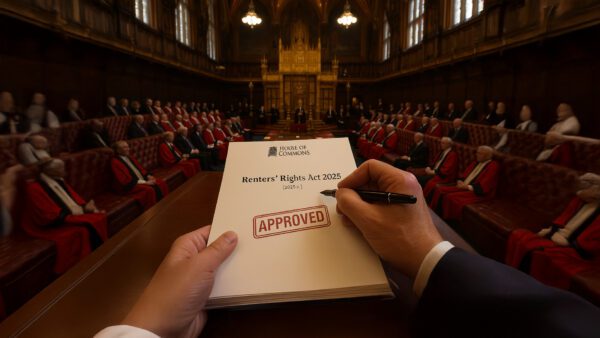In 2025, the UK government remains focused on refining its immigration framework, prioritising skills-based immigration, streamlining application processes, and strengthening border security. A series of significant updates have been introduced to the immigration system, aiming to meet the evolving needs of the UK economy while maintaining national security. Below are the key changes to the immigration system and their implications for visitors, skilled workers, employers, global talent, families, and UK residents.
1. eVisa and Digital Immigration Status
The UK is moving to a fully digital immigration system, eliminating the need for physical documents like BRC and BRP. Immigration status will be accessible digitally via eVisa platforms.
However, due to ongoing technical issues, the Home Office has extended the grace period for BRPs and BRCs until 1 June 2025 for travel purposes. It is advisable to retain these documents and carry a printout of your visa approval letter, showing the expiry date, as secondary evidence.
While the grace period exists, an estimated 600,000 people still need to create their UKVI account to access their eVisa. If you fall within this group, you are strongly urged to act now by transitioning to eVisa at the earliest opportunity, as well as ensuring your passport details are updated in your UKVI account before travel.
2. Electronic Travel Authorisation (ETA)
The UK has implemented an Electronic Travel Authorisation (ETA) system for visitors from visa-exempt countries, including the USA, Canada, Australia, New Zealand, Japan, South Korea, Hong Kong (excluding BNO passport holders), Malaysia, the UAE, and others.
From 2 April 2025, nationals from EU/EEA countries and Switzerland will also be required to obtain an ETA to visit the UK. The current cost of an ETA is £10, with plans to increase it to £16 in the future. The ETA permits multiple entries to the UK, allowing stays of up to six months at a time for up to two years or until the holder’s passport expires—whichever comes first. Importantly, there is no “6-month in 12 months” rule, each visit simply cannot exceed the six-month maximum.
3. EU Settlement Scheme (EUSS) – Automatic Conversion of Pre-Settled to Settled Status
The Home Office has implemented a streamlined process for eligible holders of EUSS Pre-Settled Status without the need for an application to be submitted. Several thousand individuals have already been successfully transitioned to Settled Status through automated checks, and they will be notified of their status change or provided with further instructions if they are ineligible. This process will expand further throughout the year.
While the conversion will occur in phases, individuals eligible for Settled Status are advised to apply early to avoid delays. A key benefit of obtaining Settled Status is the ability to apply for British citizenship, as applicant must have held Settled Status for at least 12 months before applying (unless married to a British citizen).
4. Skilled Workers
The Skilled Worker visa remains the primary route for employment in the UK, designed to address labour shortages post-Brexit and attract skilled professionals. Operating on a points-based system, it assesses applicants based on qualifications, salary, and English proficiency.
Top Industries for Skilled Worker Visas in 2024
- Healthcare & Social Work – The largest share of skilled worker visas went to nurses, doctors, and social care workers, reflecting the urgent demand in these sectors.
- Information Technology (IT) – A strong demand persists for software developers, cybersecurity specialists, and data analysts, with ongoing skill gaps in the sector.
- Engineering – Although no longer on the shortage occupation list, civil, mechanical, and electrical engineers continue to receive a significant number of visas due to industry demand.
- Construction – Skilled trades such as electricians, plumbers, and project managers remain crucial for ongoing infrastructure projects.
- Education – Teachers, particularly in STEM subjects and special education, have been a focus of skilled worker visa allocations.
The UK prioritises high-demand fields such as healthcare, IT, and education while introducing initiatives to attract artificial intelligence (AI) and life sciences talent. Despite engineering’s removal from the shortage list, the persistent demand suggests ongoing workforce challenges.
Key changes include prioritising care workers in England and increasing the minimum salary threshold for health and education roles from £23,300 to £25,000. The government is also considering requiring industries with high reliance on immigration (such as healthcare, IT and engineering) to commit to domestic workforce training.
With these changes in place, applicants should act promptly to secure their Skilled Worker visas before further adjustments take effect.
5. Sponsor Licence Regulations
Between 2021 and 2024, the number of registered sponsors increased significantly from 38,800 to 110,500. In response, the Home Office has intensified compliance measures, introducing digital audits, risk identification systems, and enhanced scrutiny of suspicious payments.
Employers are now prohibited from passing sponsorship-related fees onto sponsored workers. This includes fees such as Certificate of Sponsorship charges, Immigration Skills Charges, and other associated costs. These changes aim to prevent employers from shifting the financial burden onto the workers they sponsor. Violating these regulations could result in revocation of the sponsor licence and financial penalties. Employers must review agreements and internal policies to ensure compliance and avoid disruptions.
The Home Office has also tightened scrutiny on “self-sponsorship” and start-up company applications, frequently rejecting them on grounds such as genuineness and compliance failures (e.g. right-to-work checks, pension requirements). However, current guidance does not prohibit self-sponsorship, provided a genuine role exists and the company demonstrates financial viability. Both start-ups and established businesses can still succeed in obtaining a Skilled Worker sponsor licence with proper preparation.
6. Global Talent
Global Talent Visa remains a key route for highly skilled professionals in digital technology, arts, culture, and academia. Several changes have been introduced for 2025, including updates to processing times, fees, and endorsement criteria.
Within Arts Council England and its sub-endorsing bodies, evidential requirements have been refined. Applicants must now submit CVs to clarify career stages, meet stricter support letter criteria, and provide clearer evidence of media recognition and international sponsorship. Awards must be for individual achievements, supported by evidence from at least two separate productions. The Prestigious Prizes route continues to exempt applicants from endorsement if they have won internationally recognised awards, with ongoing reviews of the qualifying prize list.
A significant change is the closure of Tech Nation as the endorsing body for digital technology applications from 1 May 2025 due to funding constraints. The government is seeking a successor to maintain continuity. Tech professionals should stay informed and submit applications before this transition to avoid potential disruptions.
7. British Citizenship ‘Good Character’ Requirement
To naturalise as a British citizen a person must, among other things, be of good character. The Home Office strengthened good character policy for citizenship to make it clear that anyone who enters the UK illegally or made dangerous journeys (e.g. small boats or hidden in vehicles) will normally be refused British citizenship, regardless of how much time has passed.
Each citizenship application will continue to be considered on a case-by-case basis and the Home Office may choose to apply discretion on an exceptional basis where there are particularly exceptional, compelling or mitigating circumstances, such as significant contributions to society or where necessary to comply with international obligations.
There is ongoing debate on this issue. Critics argue the policy is discriminatory and are calling for a review, while SNP MP Pete Wishart has proposed an amendment to disregard illegal entry when assessing good character.
8. Family Visa
The minimum income requirement for sponsoring family members to come to or stay in the UK is £29,000, or £88,500 if relying on cash savings, with exemptions for those receiving disability or carer benefits. Initial plans to raise this threshold to £3,500 and then to £38,500 and then to £38,700 in 2025 have been paused. Under the same formula, the required savings would be £101,000 and £112,750, respectively. The savings may be held in a combination of accounts, including those in the sponsor’s spouse’s, or joint name.
The Migration Advisory Committee (MAC) is reviewing the financial requirements, with any future changes depending on its findings and government decisions. Home Office sources have indicated that the review may take approximately nine months, but no firm timeline has been confirmed. Those considering an application are advised to submit before any future increases take effect.
9. Ukraine Visa Schemes
Since the launch of the Ukraine visa schemes, the UK has provided sanctuary to over 300,000 Ukrainians. The Home Office continues to review these schemes to ensure stability for those already in the UK. In 2025, the eligibility criteria under the Homes for Ukraine Scheme were amended to allow parents or legal guardians to sponsor their children to join them in the UK. Additionally, the Ukraine Permission Extension Scheme offers eligible Ukrainian nationals and their immediate family members an 18-month extension of their immigration permission.
There are currently no plans for settlement options, so those on the scheme should explore other immigration routes for permanent residency.
Conclusion
As the UK immigration policies continue to evolve, it is crucial for applicants and organisations to remain informed and proactive in navigating forthcoming changes. With the introduction of digital immigration statuses, revised visa requirements, and potential fee increases, it is advisable to submit applications as soon as eligibility is met. For guidance on how these changes may affect immigration objectives, consulting an immigration lawyer is recommended to ensure compliance and optimise opportunities within this shifting legal landscape.









